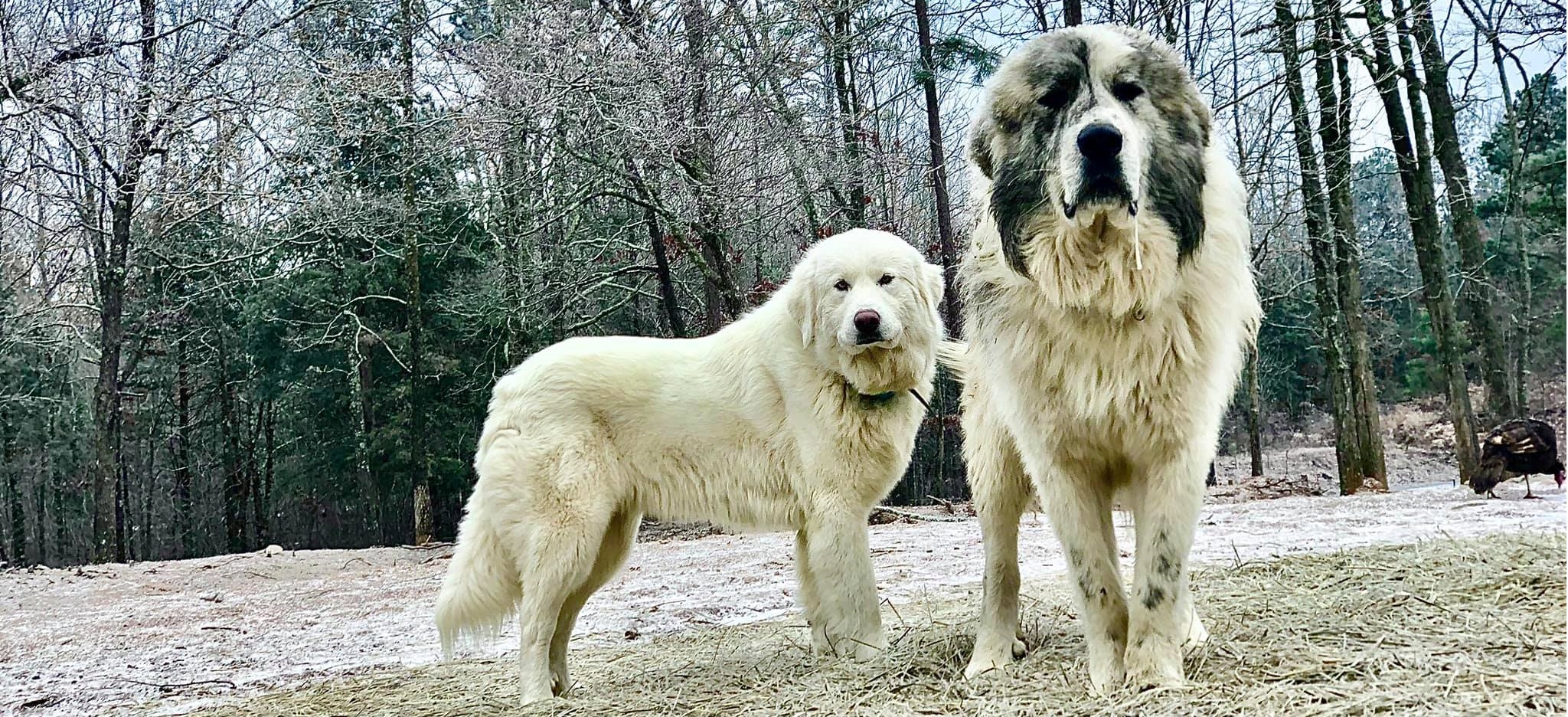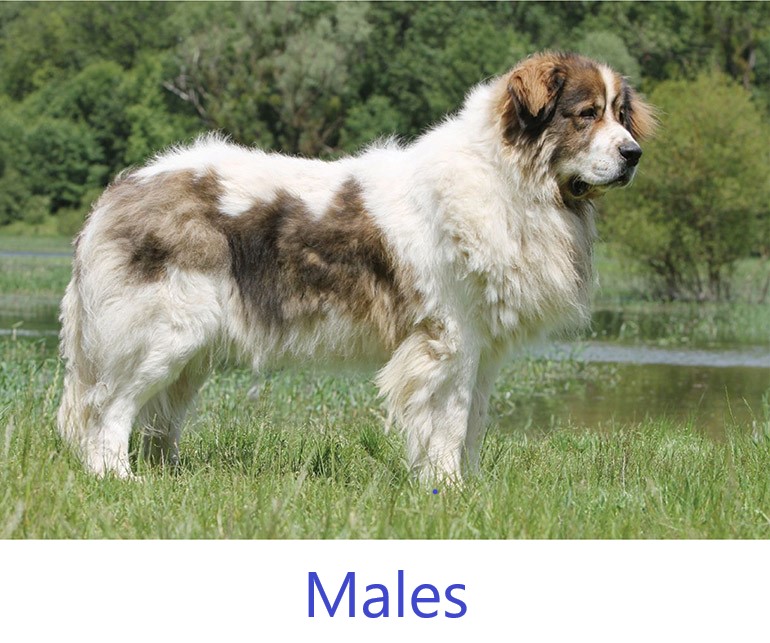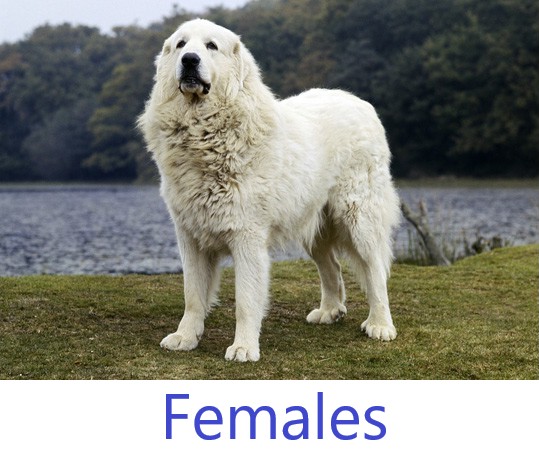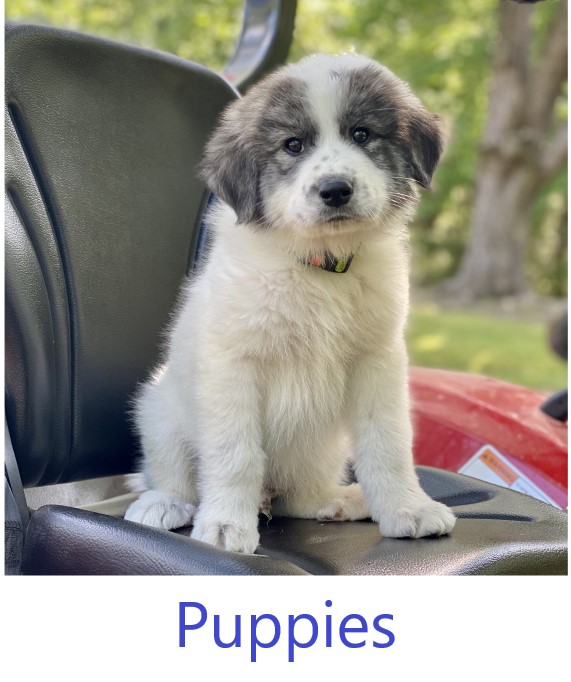Livestock Guardian Dogs
Tennessee based Lucky Creek Ranch, actually began as Single Eye Farm (a reference to Matthew 6:22) in Georgia during the late 1970’s, while much has changed in the 50 odd years since our family embraced farming life, the use of the Great Pyrenees as a Livestock Guardian Dog (LGD) has not. Through many, many generations of Nubian goats and dogs we have settled upon the traits and training that we require of an LGD to be a useful and productive addition to the farm.
Lucky Creek Ranch has no interest in producing AKC registered dogs, nor will you will find a single one within our stock. It has long been our experience that conformation (which Kennel Clubs are interested in) is of no importance compared to actual working ability. Ask yourself how much value an “AKC registration” adds for the German Shepherd Dogs, or Belgian Malinois used by professionals, police, and military for actual protection work? Answer: none. People looking for that type of dog would look at the parents pedigrees for IGP (Internationale Gebrauchshund Pruefung) previously known as IPO, VPG or Schutzhund titles; a dog sport that tests a dog's tracking, obedience, and protection skills, and evaluates if a dog has the appropriate traits and characteristics of a good working dog. While there is no formal LGD contest, we measure the quality of a Livestock Guardian dog based on intelligence, courage, adaptability, hardiness and most importantly results. The latter being decreased or eliminated predation of livestock by coyotes, foxes, bobcats, bears, etc.
At Lucky Creek Ranch we do not produce Great Pyrenees Pets, while most any dog can be turned into a pet, and some of the pups we have sold have gone on to live pampered house dog lives, that is not our goal. From the time a litter is born we try to have no more human contact with the pups than is necessary for their immediate health and well being. The first 10 days the pups and the mother will be kept in a separate indoor area away from larger livestock so we can monitor health and growth. After which the puppies and mother will be moved to an outside barn, where they are stalled in close proximity too, but not in contact with livestock. This will allow them to start accepting the smells and sounds of livestock at a young age. They will remain stalled for approximately 1 to 2 weeks at which point they will be given the ability to free roam in and about the barn and an attached fenced area that contains, chickens, turkeys, ducks, geese and smaller goats; again aside from limited contact during the farm feeding routine the pups are not generally handled by people. The goal is to make the pups familiar with people as food providers, and a non threat but not to have the pups bond with humans. Ideally and this is a difficult concept for some, you want your LGD to tolerate you and love your animals. If given the choice of coming in the house or sleeping with their charges during rain, sleet or snow, a good LGD should choose to stay with the herd.
It has been our experience that a pair of dogs is always better than a singular dog when you actually have the expectation of letting them work and protect livestock. As puppies and adolescents they will utilize each other for play and roughhousing as opposed to trying to play with your livestock; this can be a problem when a single dog going through adolescence finds themselves bored and in need of someone to play with. As paired adults they will rely upon each other for companionship, guarding and to sound the alert against a perceived threat. Also two dogs are considerably braver than a singular dog when facing an unfamiliar threat. It is also typically better to purchase siblings as they will be bonded with each other to some degree; this prevents the lone wanderer issue, and lessens the likelihood for fights as can be the case when a new dog is purchased to augment an existing LGD that already has established territory.
Please do understand that in general a herd bonded Great Pyrenees, especially ones that have been bred over generations for livestock work are not particularly fond of other canines; this is a good thing as coyotes, foxes and aggressive strays are canines too. This can create a problem where the presiding herd guardian refuses to accept or outright attempts to injure new LGD recruits they feel they see as a threat to the herd. They are just doing there job and have no way to distinguish between a herd threatening stray dog or a another LGD being added into the protection matrix. This is not to say that a new dog cannot be added, just that there is a process that needs to be followed to prevent the injury or death of your pup and even then acceptance is not guaranteed.
We breed dogs that are territorial, bond well with other animals and display a non-overtly aggressive temperament; this is not to say that our dogs are pushovers. The lack of overt aggression means that they view fighting as the option of last resort and that they are not apt to leave the herd and go charging after a predator in the distance. We prefer our dogs alert each other, come together and bark off the threat shoulder to shoulder; only fighting in the event that a predator keeps pushing in. In a livestock protection scenario wherein a dog has room to roam, an overly aggressive dog usually ends up dead; by human hands or by leaving safety to chase a lone coyote only to be jumped and eaten by the rest of the pack.
Our Great Pyrennees LGDs can be found guarding livestock on farms and ranches from Florida to Montana and some as pets. We have many references available as well as plenty of pictures of the adults doing their jobs in various parts of the country.
Puppy General Information
- All Great Pyrenees pups are exposed to livestock continuously from a young age, accordingly they are generally not “human” bonded yet.
- They are typical puppies and while you will get them with a great livestock familiarity start it’s up to you to build upon that or possibly lose that by converting them to a pet and human bonding them.
- All puppies will have been dewormed, and vaccinated for distemper, hepatitis, parainfluenza, and parvovirus. It will be your responsibility to get them vaccinated for rabies as the earliest that can occur is 4 months and we only keep pups to 10 weeks of age. All puppies will come with a health record and growth chart.
- Because our dogs are happier with a job to do and animals to guard, we only place our dogs in working homes. A puppy contract will need to be completed and signed prior to our acceptance of deposit.
Puppy Placement and Reservation Policy:
We are starting a waiting list for our Spring 2022 litter! Once you’re on the list, you will be notified when the puppies are born and what sexes are available. We only place our pups in responsible, loving farm and ranch homes.
A deposit to reserve a puppy is $75. This deposit is non-refundable (unless we cannot provide you with a puppy) and is applied to the purchase price of your puppy. Once we receive your deposit, you’re officially on the list for your new Great Pyrenees LGD!
*We do reserve the right to refuse a sale if we don’t feel that one of our pups would be a good fit for your farm.
Puppy Pricing: $500.00
What Happens After Your Deposit:
As protectors of livestock it is very important to us that we place the puppies in an environment where they can be successful, happy and provide a positive addition to your farm and ranch lifestyle. We will work closely with you to help you choose the right puppy to fit your needs. Please let us know what traits you are looking for in a LGD so we can evaluate the current litter and best determine the right pup for your needs. The Puppy selection process begins at 5-6 weeks of age as by that time they will begin to exhibit individual personalities that will allow us to evaluate temperament and LGD traits. The balance on your puppy is due at this time.
Puppies stay at our farm until 10 weeks of age or 12 weeks of age by special arrangement, availability and for an additional fee. You are welcome to come to the farm to pick up your puppy or we can ship your new puppy by air (see livestock shipping policies section). Transportation, airfare, shipping crate, veterinarian fees and any other associated costs are due prior to shipping. We offer lifetime breeder support and are always happy to offer advice!





